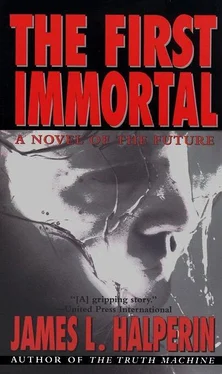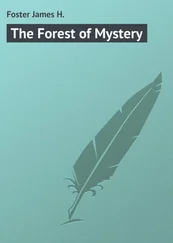Ben hated even to think about separate schools. Wellesley was ten miles from Harvard, and that was too far. He looked at her beautiful, serious, intelligent face and knew she was the only girl he would ever love; as Marge had told Ben that he was the one with whom she wanted to spend the rest of her life.
Suddenly the image popped into his mind, as it often did, of their most recent evening together, kissing passionately, then touching, first everywhere, but eventually just there. Harder and harder until the urge became irresistible, and finally, ecstatic relief.
In a biblical sense, Ben and Marge had never consummated their love, although recently they had not left each other unsatisfied. Their hands knew many secrets.
“Hey, Toby,” Ben called across the table, “what time ya con-tin’ over tonight?”
It took his friend a few seconds to extricate himself from Sally and regain his composure. “Tonight? Oh. After dinner, I guess. That okay?”
“Sure thing. Should only take a couple of hours, if I can keep your brain switch at the on position.”
Toby chuckled good-naturedly. “It’d take all night if we tried to study at my place.”
“Parents fighting again?”
“When don’t they?”
“Well, it’s not like they beat each other up or throw dishes or anything,” Ben said. “They just like to argue is all. Some couples are like that.”
“Mine sure are,” Sally interjected.
“Yeah, but at least your parents like each other,” Toby said. “My parents must’ve, too, once. But now they’re each convinced they married the Antichrist!”
“But they love you ,” Ben said. “You’re the reason they’re still together.” In fact their religion forbade divorce under virtually all circumstances. But such a notion was foreign to Ben, whose parents, though devout, embraced religion mostly as an expression of gratitude for their lives.
“Yeah, some consolation,” Toby said. “Don’t know if I’ll ever get married myself. Too damn risky.”
Ben noticed Sally’s face clouding. “But wouldn’t it be worse,” he asked, “to spend your old age alone?”
“Not from where I sit. Alone seems a lot better than living the next forty years with somebody you can’t stand.”
Sally recovered quickly. “Then where do you imagine yourself in forty years?”
Toby laughed. “Cemetery, probably, pushing up daisies.”
“Y’know,” Ben said seriously, “I was thinking we might all be around longer than we realize. What if you could live forever? Wouldn’t you want to?”
“No way,” Toby said. “Heaven’s gotta be a whole lot better than Wakefield.”
“Who said you’re going to heaven?” Marge cracked.
“Good point. Actually, hell might be better than Wakefield. But just hypothetically, Ben, are you asking if I’d want everyone to live forever, or just me?”
“Everyone, I suppose.”
“Everyone? Interesting.” Toby paused. “But then, what’d keep us from abusing each other? I mean, if we all knew we’d live forever, never having to face God’s judgment for our sins, well, aren’t most people crazy enough as it is?”
“Oh, I don’t know,” Marge offered. “People who expected to live forever might be nicer. After all, if you never died, whatever you did to others would eventually come back to you one way or another.”
“Exactly,” Ben agreed. “Any act of kindness, or spite, is sorta like a stone pitched into an endless sea. Y’know how ripples spread from the impact? If you plan to sail those waters forever, you might be more careful about what you toss into ‘em.”
“What do you mean?” Sally asked. “Like, for example?”
“Well, most everyone claims to believe in heaven and hell, but some people obviously don’t. So how do you set penalties to fit the crime? For instance, suppose some despot who only pretends to believe in God enslaves a million people for twenty years. What’s the worst punishment he’d expect? Maybe if he gets unlucky, his life gets shortened by a decade or two. He’d probably figure it’s worth the gamble; dictators usually think they’re invincible, anyway.”
“Yeah?” Toby asked. “And how does death enter into it?”
“See, if that same man had the potential to live forever, he might become more interested in building up goodwill; helping society improve. He could still be amoral, but only really deranged people do things they know they’ll be punished for. Maybe he’d decide that fifty, or a hundred, or a thousand years from now, he’d be better off if he suppressed his impulses now.”
“Yeah, that’s possible, I guess,” Toby conceded. “But still, it’s natural to die.”
“Oh, it’s natural all right,” Ben said. “Just like hurricanes, floods, and diseases are natural. Earthquakes and ice ages, too. Some even say war is natural. Maybe we should think of nature as an adversary.”
Marge offered no opinion, but Sally did: “I think nature’s wonderful and we should respect it. When it’s my time to go, I’ll be ready.”
“Nature is wonderful, if you’re dealing with it successfully,” Ben argued. “Yeah, looking at it, or contesting it with a fishing rod or a test tube. It’s easy to say you’ll be ready to give in to it, too. That you’ll be ready to go when it’s time, until the time approaches, then you’ll fight against it, that’s for sure.” His voice was calm, serious, without a trace of mockery.
“I won’t fight it,” Sally insisted. “Not when my time comes.”
“And if you caught some fatal infection tomorrow? Would you refuse medical treatment to save your life?”
“No, of course not.” Sally appeared somewhat uncomfortable with the contradiction in her answer.
“Even if the treatment isn’t ‘natural’?”
“Okay. I get the point,” she said with a flash of defiance. “But still, when I’m sixty, sixty-five, that’ll be plenty for me.”
“So let’s pretend you’re sixty,” Ben pressed on. “What if they invent a serum that would give you, say, another twenty-five years of vigorous health?”
“Well, yeah, I guess that’d be nice.”
“So your time could come at eighty-five just as easily as sixty?”
“I suppose so.”
“See? Nobody really wants to die, but we make believe it’s perfectly okay. We keep up the pretense, not only to others, even to ourselves, because right now, dying after six or eight decades is almost a certainty. But don’t feel bad. Used to be the same way myself, till just recently.”
Sally’s face brightened slightly.
“What about evolution?” Toby argued. “Without death, how can the human race develop?”
“I thought you rejected the premise of evolution,” Ben said.
Toby was raised as an Evangelical Lutheran and had been told, ever since he was a small child, that God created heaven and earth about seven thousand years ago.
“Lately, I’m agnostic,” Toby said. “But you believe in evolution.”
“Actually, one doesn’t believe in it so much as accept the evidence for it. Which I’d say is overwhelming. But evolution’s the cruelest thing about nature; if it stopped today, I wouldn’t miss it a bit. Think of the countless millions of prehumanoids who suffered horrible deaths just so you could hit that triple yesterday.”
Toby smiled. “So if a few thousand more of my ancestors had sacrificed themselves, it would’ve been a home run?”
Everyone laughed, especially Ben. “Strange concept, I admit. But someday medical scientists should figure out how to analyze sperm cells and ova, and predict which combinations can produce the most desirable traits.”
Marge grinned at Ben. “I just want our kids to do their homework and show up for piano lessons.”
Читать дальше












